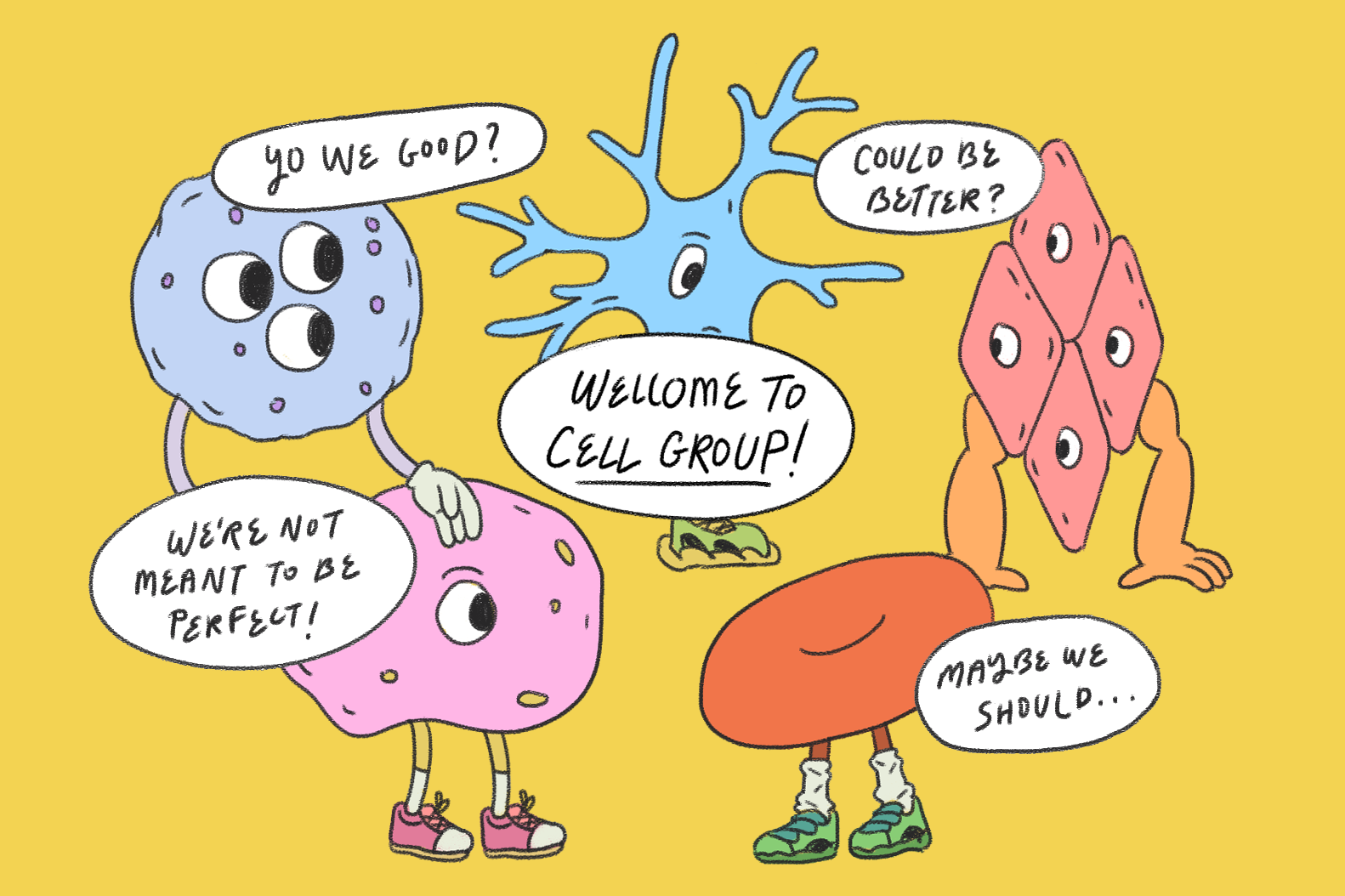When I made the decision to follow Jesus as a young teenager, I was captivated by what I often heard among other young Christians about “being on fire for God” and “living for Jesus”. It sounded great and alluring, but alas, I hardly understood what was required of me, exactly.
As a young Christian, I was taught in different Christian circles that the primary call of a disciple was to evangelise and preach the Gospel – the Great Commission. This is a fundamental way in which we view the world around us and interact with those who may not believe what we believe.
“Then Jesus came to them and said, ‘All authority in heaven and on earth has been given to me. Therefore go and make disciples of all nations, baptising them in the name of the Father and of the Son and of the Holy Spirit, and teaching them to obey everything I have commanded you. And surely I am with you always, to the very end of the age.’” (Matthew 28:18-20)
But I had my own struggles with this because evangelism often seemed to be a “one-off”, touch-and-go kind of exercise. It just didn’t sit well with a relational person like me who would much prefer to build relationships before embarking on such a faith conversation.
For a considerable portion of my Christian life, I laboured under this belief that telling people “about Jesus” was to form the priority in all my social interactions – whether with strangers, friends or loved ones.
The call of the Christian is to proclaim the Good News and demonstrate good works.
My thoughts were often laced with the hidden question or even “agenda” of when would be the “opportune” time to broach the topic and start the conversation with someone. And when I missed a chance to do so, I often felt guilty or ridden with the burdensome thought that I “let God down” again by failing to acknowledge Him before man.
Over time, it just became too great a burden and weight to bear; what began as an earnest desire to love God and make Him known, turned into a task that I had to perpetually make sure I check off my “Christian checklist”.

The Christian life comes with various “calls” – to serve, to love, to missions, to teach, to preach, and to reach/evangelise – but the crux of it falls into two main categories as most might understand: To proclaim the Good News and demonstrate good works.
Still, the question remains. How then shall we live? How do we live this out on a daily, moment-by-moment basis?
WHAT GOD REQUIRES OF US
Somewhere along this journey, as I sought after God and a definitive answer to the question of what it means to follow Him, a particular verse in the book of Micah stood out to me, as it directly answered what I had been asking Him for years: “What exactly do You require of me, Lord?”
“He has told you, O man, what is good; and what does the Lord require of you but to do justice, and to love kindness, and to walk humbly with your God?” (Micah 6:8)
But what does it mean to “do justice and love kindness”? How does this “balance” out with the call to evangelism and to make Jesus known? Which comes first and has priority? Could I choose to do one and not the other according to my “gifting”?
There is no biblical dichotomy between evangelistic and social responsibility.
My journey into understanding “integral mission” was therefore birthed out my journey into answering some of these questions. I grappled with the apparent tension between proclamation and demonstration of the Gospel. Which should take prominence in any given situation?
Is the feeding of a homeless person only given “true meaning” if I told her it was Jesus who sent me? Or is it more critical to “save her” from her physical hunger? Is there really a priority for one over the other in a disciple’s life and ministry?
The Lausanne Movement’s definition of “integral mission” seemed to apply like a soothing balm amid these quiet contemplations and tensions in my mind:
“Integral mission can be defined as the task of bringing the whole of life under the lordship of Jesus Christ, and includes the affirmation that there is no biblical dichotomy between evangelistic and social responsibility …
“It is not simply the issue of evangelism and social involvement being done alongside each other but rather that ‘our proclamation has social consequences as we call people to love and repentance in all areas of life’ and that ‘our social involvement has evangelistic consequences as we bear witness to the transforming grace of Jesus Christ’.”
GOOD NEWS AND GOOD WORKS
When my daughter was an infant, I carried out what seemed like many “thankless tasks” on account of having declared myself as her father. There was (and is) simply no running away when you smell the sudden stench of a soggy, soiled diaper.
On one occasion, while I was changing my little girl, she soiled herself in the process of being changed. I remember experiencing a brief moment of frustration as I reached out for a fresh diaper, before I calmed down and tenderly said to her: “You know, I’m doing this because I’m your ‘Papa’, yes?”
For some strange reason, I felt inexplicably compelled to explain the basis of my demonstration of love to her: “I do this because of who I am and what I believe”. Over time, she has grown in her consciousness of this truth, and is now able to use the word “Papa” not only to identify who I am, but also what I am able to do for her.
The truth is that it is often hard to identify where our “proclamation” and “demonstration” begins and ends. It would be bizarre for me to leave the soiled diaper on for a couple of minutes more so that I can explain what parenting is or what biblical fatherhood looks like before I move on to meeting the needs of my little girl.
But maybe that is the point. Both proclamation and demonstration are so integrally connected and fundamental to our Christian lives that there is hardly any question as to which should be prioritised over the other. Perhaps, we have been asking the wrong question all along.
Both proclamation and demonstration are so integrally connected and fundamental to our Christian lives.
Both are fundamental aspects and expressions of who God is and who He continues to reveal Himself, and there are no separate, parallel streams of evangelism and social action in His heart. The real question I believe we should be asking, is what the Father’s heart and mind is turned to in that particular situation for that particular person or community.
I believe that this is a critical for the Church to fully grasp this truth in this particular season where Christians have come to be known more for what they are against than what they are about.
If we are be able to go deeper into truly understanding the heart of God fully as His sons and daughters and to attune ourselves to keep in step with His spirit in each moment, we can make Him known in the way He wants to be known for that moment. We calibrate ourselves to the heart of God rather than to a fixed formula of what we think it means to “live a Christian life”.
In my humble view, the concept or understanding of integral mission simply helps us to go beyond the question of whether proclamation or demonstration comes first, so as to live lives of integration – a paradigm that I believe Jesus was living on when He walked the earth.
“Jesus gave them this answer: “Very truly I tell you, the Son can do nothing by himself; he can do only what he sees his Father doing, because whatever the Father does the Son also does.” (John 5:19)
It enables us to move beyond thinking through the grid of strategising “the best moment” to start talking about Jesus or to completely ignore it altogether so that we can focus on the “more immediate needs”.
Perhaps we need to start seeing as a Church that this call isn’t really ours to make because we simply do not know what that person truly needs – only God does. Instead, we should be asking: “Lord, what is on Your heart right now? What do you see? What are You doing in this person’s life right now that you want me to align to?”
We don’t make our own assumptions about whether proclamation or demonstration should “feature” more – we simply listen closely and obey, allowing our lives to be framed and processed through that grid.
So then, the question remains – how do I live this out? Perhaps more specifically, what should I do if I were to come across a homeless, hungry person on the street?
HOW DO I DO GOOD?
Perhaps this story I heard from a friend will help to shed some light on what I believe our response should be in such a situation.
After passing an old lady on the street who looked haggard and grimy, a friend of mine felt led to buy this lady a packet of food. Her appearance alone tugged at his heartstrings, and so he responded immediately by buying a packet of caifan from a nearby stall.
He then caught up with her and followed her, thinking of how he should hand her the food. As he observed what she was up to, it soon became clear that she was digging through the dustbins for something.
When she spotted him tailing her, she shouted at him and asked him why he was following her. In defence, he then sheepishly handed her the packet of food and said that he thought she might be hungry and wanted to offer her some food.

She smiled and readily received the food, telling him she was actually rummaging through the bins for something to eat. After the awkward encounter, she took the food with her and left, leaving my friend standing there, unsure of whether he would, could or should say anything more.
He didn’t even get to say anything about God – a rookie mistake of “Evangelism 101”. Strategising fail.
“All I was looking for was someone – one of My children – who would hear My voice and obey me.”
Unsatisfied with how things ended, he continued to observe her from a distance to see where she would head next and what she would do with the food. As she sat down in front of the Chinese temple to consume the packet of rice, he felt a deep sense of frustration overcome him – he regretted not having at least told her that it was God who told him to buy the food for her.
At the very least, he thought that he could have at least drawn a cross on the styrofoam packet so that she would identify his act with Christianity, Jesus, the Church, or something!
However, it was in that quiet moment of frustration and dissatisfaction that he sensed the tender prodding and gentle voice of God speak to him, saying:
“You didn’t hear her stomach rumbling, but I did. You didn’t know she was looking for food, but I did. All I was looking for was someone – one of My children – who would hear My voice, obey me by buying some food, and hand it to her with no questions asked.”
Only God knew. And only God knows.
LOVE IS INTEGRAL TO MISSION
In every situation, our job is not to assume – based on experience with people/communities, formulas or preconceived notions – how we should interact with the world around us. Understanding integral mission helps us break out of the mould of assuming that we know best to prioritise either proclamation or demonstration because I believe that there is hardly any “fixed” answer.
The real question is how the integration of proclamation and demonstration come together in our lives and expressions, so that it truly reflects the Heart of God – who He really is. And as we know from Scripture, He is a God who proclaims as much as He demonstrates His love for us.
More importantly, He knows best what it is we need, and when it is we need it. Our only goal is to be so attuned to His heart, that we can know Him fully so that we can make Him fully known.
Jonathan is part of the team organising the Micah Conversation, which will take place on July 19-20, 2019, at Covenant Presbyterian Church. The gathering brings together individuals and organisations who champion and have lived out various expressions of integral mission.
To register, please sign up here. Registrations close July 12, 2019.
- Why can’t Good News and good works exist without the other?
- If salvation is free, why must we still do good deeds?
- What are some areas of injustice in our nation?
- How can we better in the areas of mercy and justice?











